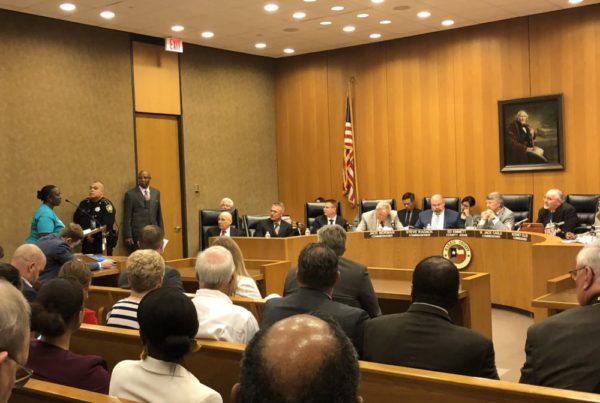According to a recent Washington Post poll, 76 percent of millennials say they favor transitioning away from fossil fuels and towards renewable energy sources. Fossil fuel companies aren’t afraid of that figure. Instead of waving the white flag, they’re bearing down in the fight for young minds. The Texas Natural Gas Foundation, an advocacy group with industry ties, recently collaborated with the University of Texas and a state energy agency, to create a curriculum that teaches school children about the virtues of fossil fuels.
Asher Price, who covers the environment and state agencies for the Austin American-Statesman, has been reporting on this industry-influenced curriculum.
Price says the idea for changing the curriculum was inspired by a test taken home by State Rep. Jason Isaac’s son. Isaac, a Republican, saw a question about climate change that bothered him. It aske what contributes to climate change? Gas, oil, or all of the above?
“Jason Isaac thought this was a biased question – it should be ‘none of the above,’” Price says. “Anyway, he got together with his fellow board members at the Texas Natural Gas Foundation, and tried to figure out ways to influence what kids are taught in Texas public schools.”
The curriculum technically isn’t created by the Foundation directly. According to Price, the work of creating the curriculum is “farmed out” to teachers in Texas public schools who say they are not influenced by the foundation. However, despite their claims, the foundation eventually took ownership of the material and made changes to it.
“Some of the material had said ‘natural gas and fracking wouldn’t be devastating to the environment,’” Price says. “They rewrote that to say ‘fracking and natural gas exploration will improve the environment.’”
Price says he showed the curriculum to experts who specialize in creating science material for grade school students. They noted several problems and called it “misleading.”
“It lacked any real discussion about environmental consequences,” Price says. “In all this material – dozens and dozens and dozens of pages – there’s one mention of climate change, and it’s in a teaching guide.”
Despite the fossil fuel-friendly nature of this material, Price says there isn’t much Texans can do about it. It meets Texas’ education standards. Besides that, Price says parents should be aware of what their children are learning.
“I think it’s important for Texans to know whether it’s the energy curriculum the,” Price says. “It’s important for them to know politics are involved one way or another.”
Written by Kevin Wheeler.
















